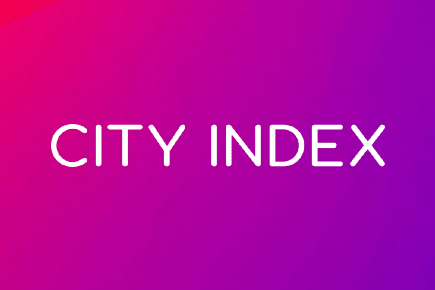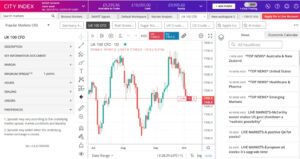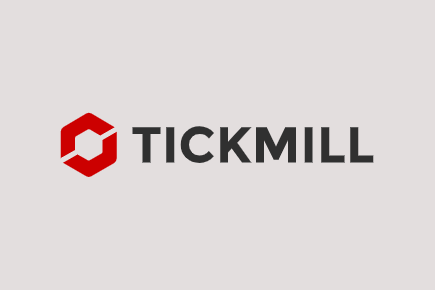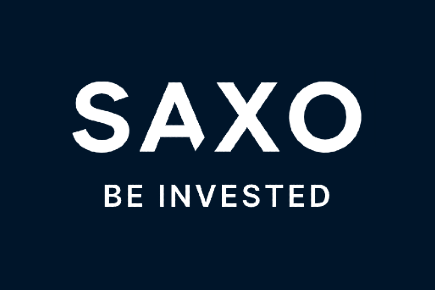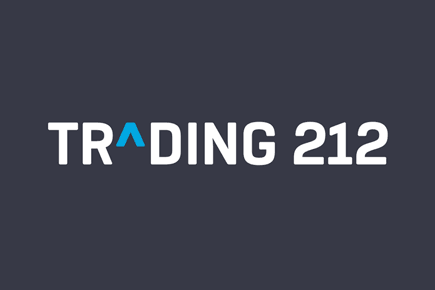CFD trading has become one of the most popular investment concepts in the past few years, with many investors starting to pursue it as a serious investment strategy. But, with so many trading platforms on offer, it can be difficult to find the right one for beginners.
In this guide, I’ll show you the details of 10 brokers in the UK to help you find the best CFD trading platform for beginners. I’ll also explain how CFDs work, and the pros and cons of exploring a trading strategy based on trading CFDs.
Also consider: Find UK brokers for trading
Browse the best CFD trading platforms for beginners in 2025
Find my list of the top CFD brokers UK for beginners below.
Top CFD platforms for beginners at a glance
Featured CFD Trading

80% of retail CFD accounts lose money
Excellent Customer Service
- User friendly mobile app
- Excellent trading tools
- Tight spreads
Demo account available
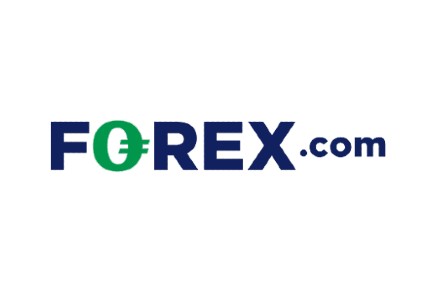
Capital at risk. T&Cs apply.
Over 80 currency pairs
- Good trading tools and analytics
- Great trading platforms
- Low-cost trading platform
Featured Investing platform

Capital at risk. T&Cs apply.
Copy top traders
- Best for copy trading
- Free trading on stocks
- Easy account opening
Trusted partner

80% of retail CFD accounts lose money
2000+ CFDs
- User friendly mobile app
- unlimited CFD demo account
- Trading academy
Plus500 have launched their own analytical tool ‘Insights’. This is a powerhouse that produces up-to-date analysis on millions of trades from other users, allowing you to get a handle on trader sentiment and which were the highest-yielding trades. This could be considered even more valuable than copy trading, as it allows traders to harness the wisdom of crowds.
On the negative side of the coin, there is no MetaTrader platform available here so loyalists will be disappointed. In addition, education is minimal and there is an inactivity fee should your account lie dormant.
What I like about trading CFDs on Plus500
There are over 2000 CFDs to choose from at Plus500 which should be sufficient for any appetite. This includes over 20 commodity CFDs, 90 ETF CFDs, indices CFDs, options CFDs, and shares CFDs.
I am also impressed with the proprietary trading platform which is well-suited to active traders looking for competitive pricing and an excellent level of customer support.
Please note, for beginners, rather than jumping straight into CFD trading, it would be better to make full use of the unlimited demo account at Plus500 along side their excellent and detailed trading academy.
Pros
- no commissions, spreads and other fees apply
- Tight spreads
- Guaranteed stop-loss orders
- Low minimum deposit
- No deposit or withdrawal fees
- Massive range to assets and financial markets available
Cons
- Inactivity fees
- Weak customer support
Plus500 Fees
| Inactivity fee: | $10 per month after 3 months of inactivity |
| Withdrawal fee: | $0 |
| Average spread: | 0.8 |
Assets available from Plus500
- Forex
- Commodities
- Shares
- Options
- ETFs
- Indices
CFDs are complex instruments and come with a high risk of losing money rapidly due to leverage. 80% of retail investor accounts lose money when trading CFDs with this provider. You should consider whether you understand how CFDs work and whether you can afford to take the high risk of losing your money.
Forex.com is another of the best CFD trading platforms available in the UK, boasting tight spreads, low commissions, and dedicated support services available while using its award-winning platforms.
As a specialist platform for trading commodities and forex pairs, Forex.com might be the best CFD trading platform for these specific assets.
While this is a great platform for forex trading, Forex.com does still offer access to thousands of UK, US, and global shares. Commissions are fairly reasonable, starting from just 0.08%, which means you could still find yourself trading stock CFDs with this provider.
Forex.com does require a modest minimum deposit of £100 (or currency equivalent), but this is relatively reasonable when compared with the other CFD trading platforms on offer.
CFDs are complex instruments and come with a high risk of losing money rapidly due to leverage. 76% of retail investor accounts lose money when trading CFDs with this provider. You should consider whether you understand how CFDs work, and whether you can afford to take the high risk of losing your money.
eToro is one of the most popular investment platforms available, and makes a great option as a CFD broker for beginners.
One of the reasons eToro is so useful for beginners is that you can open a demo account with this CFD broker. That means you can spend some time getting to grips with this online CFD trading platform before you have to invest any of your own money.
You can trade CFDs on almost any stock or share available on eToro. Even so, this platform is not just a CFD stock broker, as you can trade CFDs on a range of other assets, including:
- Forex
- ETFs
- Indices.
This CFD trading platform boasts low trading fees, and requires a minimum deposit of $100 USD.
However, there may still be certain trading costs, and you may find yourself paying this indirectly in the spreads of the assets themselves.
Additionally, there is a monthly $10 inactivity fee that comes into effect after one year of no activity on your account.
So, make sure you’re set on using eToro for the long term if you’re just starting out, as you may quickly find yourself racking up inactivity fees otherwise.
{etoroCFDrisk}% of retail investor accounts lose money when trading CFDs with this provider. You should consider whether you can afford to take the high risk of losing your money. Your capital is at risk. Other fees apply. For more information, visit etoro.com/trading/fees
Admiral Markets is a well-established broker offering a comprehensive suite of Contract for Difference (CFD) trading options across various asset classes. With a strong regulatory framework and a focus on trader education, Admirals caters to both novice and experienced traders.
Key Features:
- Diverse CFD Instruments: Traders have access to over 8,000 CFD instruments, including forex, indices, commodities, shares, ETFs, and bonds, providing ample opportunities for portfolio diversification.
- Advanced Trading Platforms: Admirals offers both MetaTrader 4 (MT4) and MetaTrader 5 (MT5) platforms, enhanced with the Supreme Edition add-on. This integration provides advanced tools such as Trading Central feed, sentiment analysis, news updates, enhanced trading terminals, simulators, and an extensive indicator package.
- Competitive Fees: The broker is known for its low forex CFD fees, with spreads starting from 0.1 pips and a commission of $3.00 per lot per trade. Index CFD fees are also competitive, with spreads for S&P 500 index CFDs at 0.4 points.
- Regulatory Compliance: Admirals is regulated by multiple top-tier authorities, including the UK’s Financial Conduct Authority (FCA) and the Australian Securities and Investments Commission (ASIC), ensuring a secure trading environment.
- Educational Resources: The broker provides extensive educational materials, including webinars, articles, and tutorials, to assist traders in making informed decisions.
CFDs are complex instruments and come with a high risk of losing money rapidly due to leverage. 76% of retail investor accounts lose money when trading CFDs with this provider. You should consider whether you understand how CFDs work and whether you can afford to take the high risk of losing your money.
IG is an excellent trading platform for CFDs. Not only is this CFD trading platform great for beginners, but it’s also one of the best CFD brokers available in the UK in general – in fact, it is arguably the best CFD broker overall.
The IG trading platform gives you access to more than 18,000 global financial markets, the highest number on my list of CFD trading platforms. That means you’ll have access to a huge range of assets to trade, a great option for beginners looking to make a start in CFD trading.
You can use the IG Academy to access free trading courses where you can build up your knowledge, and you can also set up custom price alerts if you want to keep tabs on certain trades.
Like other FCA-authorised and regulated CFD trading platforms, maximum leverage is 30:1, and you’re also covered by negative balance protection – that is, the value in your account cannot go below £0, even when trading CFDs using leverage.
The only downsides to note with this CFD trading platform are the relatively high stock CFD fees of 0.10% for EU and UK stocks and two cents for US stocks. This can be less attractive than simply paying your CFD broker through the spread they offer.
IG does also require a slightly higher minimum deposit than other CFD trading platforms, with you needing to put £250 into your account.
Even so, this is not necessarily a total barrier to entry, as this may be an amount you want to trade anyway.
Spread bets and CFDs are complex instruments and come with a high risk of losing money rapidly due to leverage. 71% of retail investor accounts lose money when trading spread bets and CFDs with this provider. You should consider whether you understand how spread bets and CFDs work, and whether you can afford to take the high risk of losing your money.
City Index is a low-cost, well-established CFD and spread betting platform that provides access to more than 40 options markets, with daily, monthly, and quarterly contracts on offer. City Index is part of the NASDAQ-listed StoneX group.
Key Features
- Access 40+ options markets in indices, FX, metals, and commodities
- Quality news feeds from Reuters and in-house research
- Economic calendar and social media presence for retail investors
- Choice of trading platforms, including Metatrader 4 (MT4)
- Beginner-friendly educational resources
- Powerful research tools for market understanding
- Comprehensive trading tools and market news from Reuters
Pros:
- Low-cost trading platform
- Great choice of assets
- Excellent education and research tools
- Great customer support
Cons:
- No MetaTrader 5
- Inactivity fee applied
Service Fees:
- Buy/Sell Spreads: Rather than charging commission, City Index’s charges are incorporated into the spread. You’ll need to open an account (or demo account) to see spreads on their 1,000s of markets but, depending on the market, both fixed and variable spreads are offered. These start at margins from 5% and fixed spreads from 0.4pts.
- Commission: There is no commission on spread betting markets. With CFDs, you’ll only pay commission when trading shares. Commission for these trades is typically 0.08%.
- Overnight funding: Overnight financing fees on both long and short positions are 2.5% +/- the benchmark regional interest rate.
- Guaranteed Stop Order: A charge is made for use of this feature. For full details, check the website.
- Deposit / Withdrawal fees: No charges.
- Inactivity fee: A monthly inactivity fee of £12 will be applied for accounts that are inactive for 12 months or more.
- Currency conversion: Spread betting accounts are not affected because all trades take place in one base currency, usually sterling. Fees apply on CFDs. Check the website for full details.
- Borrowing costs for shorting CFDs: Borrowing costs are incurred when you short a shares CFD position. Very few markets will incur a borrowing charge – check the relevant market information sheet for details.
Investment Types:
- Indices
- Shares
- Forex (FX)
- Commodities
Best for:
City Index is a good option for beginners and mid-level traders seeking an uncomplicated platform from which to access CFDs and spread betting.
CFDs are complex instruments and come with a high risk of losing money rapidly due to leverage. 71% of retail investor accounts lose money when trading CFDs with this provider. You should consider whether you understand how CFDs work, and whether you can afford to take the high risk of losing your money.
Tickmill offers both MetaTrader 4 and MetaTrader 5 platforms, from which investors can access a wide range of CFDs and forex. The tools and resources that come with MetaTrader 4 include impressive charting tools, a fully customised charting interface, and algorithmic trading.
There are several order types that include market orders, limit orders, stop orders, and trailing stops. Professional traders can also take advantage of some of the lowest spreads in the industry here, as well as leverage of up to 1:500 on major currency pairs.
Tickmill offers several account types that cater to all levels of trading experience. Traders can get started with just $100, and setting up an account takes mere moments.
CFDs are complex instruments and come with a high risk of losing money rapidly due to leverage. 71% of retail investor accounts lose money when trading CFDs with Tickmill UK Ltd. You should consider whether you understand how CFDs or our other products work and whether you can afford to take the high risk of losing your money..
Next on my list of best CFD trading platforms for beginners is City Index, a broker offering access to more than 5,000 CFD markets.
You can access a variety of customisable charts using an award-winning trading platform with this CFD broker.
Additionally, you’ll also have access to market news, views, and commentary via news giant Reuters, all available through the City Index app itself.
There’s no minimum deposit required with City Index, and commissions are relatively low – you’ll be charged just 0.08% for UK and European shares, or a minimum of £10/ €10.
For indices, currencies, commodities, and bonds, you’ll pay no commission, with the CFD broker generating a return through the spread offered to you.
CFDs are complex instruments and come with a high risk of losing money rapidly due to leverage. 71% of retail investor accounts lose money when trading CFDs with this provider. You should consider whether you understand how CFDs work, and whether you can afford to take the high risk of losing your money.
With tight spreads, low commissions, and access to 9,000 CFDs on a huge range of assets, Saxo Markets is a great option for beginners looking to trade CFDs for the first time.
Using Saxo Markets’ award-winning platform, you can trade CFDs on assets including:
- Stocks
- Indices
- Forex
- Commodities
- Options
- Bonds.
You can also use this platform on your tablet or phone, allowing you to make your trades while on the go.
One slight drawback of Saxo Markets is the high minimum deposit – you need to put at least £500 into the broker’s “classic” account to start trading. So, if you were looking to trade small amounts to begin with while you’re finding your feet with your CFD trading, this may not be the best CFD trading platform for you.
67% of retail investor accounts lose money when trading CFDs with this provider. You should consider whether you understand how CFDs, or any of our other products work, and whether you can afford to take the high risk of losing your money. The value of your investments can go down as well as up. Losses can exceed deposits on some margin products. Professional clients can lose more than they deposit. All trading carries risk.
Last but by no means least, Trading212 is another great online CFD trading platform available in the UK.
This CFD trading platform boasts zero commission, tight spreads, and no hidden fees, helping you to keep your trading costs down.
You will also only need a minimum deposit of £1, making it highly accessible for investors and traders of all experience levels.
You can access leverage of up to 500:1 if you use the Professional Account – although obviously, this is just for professional traders. That means you’ll typically be offered the 30:1 maximum leverage that FCA-authorised and regulated providers are limited to.
It’s worth noting that, as of 14 September, 83% of retail investor accounts lose money when trading CFDs with Trading212 – the highest rate of loss on my list. Make sure you fully understand these risks before you start trading.
CFDs are complex instruments and come with a high risk of losing money rapidly due to leverage. 77% of retail investor accounts lose money when trading CFDs with this provider.You should consider whether you understand how CFDs work and whether you can afford to take the high risk of losing your money.
Before you start CFD trading, please note: CFD trading is potentially lucrative, but these investments are also complex instruments that present a high risk to your money. In fact, more than half of retail investor accounts lose money when trading CFDs.
Indeed, even the top CFD brokers are required to clearly state how many retail CFD accounts lose money when trading on their platform. With most CFD brokers, this figure typically ranges from at least 50% and can reach above 80% for retail investor accounts.
Please make sure that you know these risks before you start trading and that you’re aware there’s a high chance of losing money rapidly on your investment.
Which is the best trading platform for beginners?
It’s hard for me to say which of these CFD trading platforms is the best for beginners, as the features and benefits vary across each one.
For example, if your priority as a beginner is access to educational tools, one of the best CFD trading platforms for you might be IG or Plus500.
Meanwhile, if you’d rather learn by doing without risking your money, the best CFD trading platform for you might be one of those that offers demo accounts, such as eToro.
Additionally, you may want to give some thought to your trading style. If you intend to trade large volumes, the best CFD trading platform for you might be one with low commission and tight spreads, such as Trading212.
Make sure you fully research a platform before you open an account. My list above of the best CFD trading platforms is a great place to start, but also visit each broker’s site to discover whether they’re the right choice for you.
What is the safest CFD trading platform for beginners?
As of 14 September 2022, the CFD platform on my list of the best options available for beginners with the fewest retail investor accounts losing money when trading CFDs was AvaTrade, coming in at 71%.
However, this isn’t necessarily the safest broker, as another broker that’s not on my list may have lower rates of retail investor accounts losing money trading CFDs.
Generally speaking, there are no “safe” CFD brokers, as you could lose money on your trades no matter who your provider is. So, make sure you fully understand how leverage works and the risk you are taking on before you trade.
When choosing the safest CFD trading platform, it can often be sensible to choose one that’s authorised and regulated by the FCA.
This offers two key benefits:
- Leverage for retail investor accounts will be limited to 30:1. This prevents all but the most experienced traders from using too much leverage, which can cause you to lose money rapidly.
- Negative balance protection. This means that the value of your account cannot fall below £0 when trading with leverage. As a result, you won’t lose more than the value in your account, even if your leveraged trade means you would have lost more.
All the CFD trading platforms on my list are authorised and regulated by the FCA.
Is Interactive Brokers a good CFD trading platform for beginners?
Interactive Brokers (IBKR) is certainly a good CFD trading platform, and is undoubtedly one of the best CFD platforms available in the UK.
It has a range of features that make it useful for CFD trading, including some of the most detailed and comprehensive trading tools available across the entire CFD brokers market.
However, this CFD broker isn’t on my list here because it is unlikely to be appropriate for beginner traders. As a result of the complexity of its tools, it’s typically used by experienced traders.
IBKR does offer a range of educational materials to help you build your trading knowledge. But, due to its slightly more advanced trading platform, you may be better suited to learning on a more user-friendly platform before trying to trade CFDs with this provider.
How do I trade CFDs UK?
It’s fairly straightforward to start UK CFD trading. All you need to do is follow these four, simple steps:
- Open an account with a CFD trading platform
- Deposit funds to the account you now hold with your CFD broker
- Do some research into the CFDs you’d like to trade
- Start trading.
Read more about each of these steps below.
1. Open an account with a CFD trading platform
Firstly, you need to open an account with a CFD broker or trading platform that offers CFD trades.
If you’re struggling to find the right account for you, check out my list of the best trading platforms above.
2. Deposit funds
Next, deposit your funds into the account you’ve opened with your chosen CFD platform.
Make sure you don’t deposit money that you need for living your daily life and paying daily expenses, or more than you can afford to lose entirely.
3. Do your investment research
After you’ve decided how much to invest, you need to do your research into what kind of CFD investments you want to trade.
Whether that’s trying to analyse market patterns yourself or reading around CFD trading tips from other CFD traders, you’ll need to know what sort of investments to buy to create a successful strategy.
Use this research to inform your trading decisions.
4. Start trading
Finally, once you have money with a trading platform and you’ve decided on your investments, you can start making your trades with your CFD platform.
As a beginner, it’s often sensible not to go overboard when you’re starting out. Take your time and be patient with your investments so that you don’t invest and lose all your money straight away.
What are CFDs?
Before you start investing, it’s important to know what CFD trading is and how it differs from the more traditional investment options.
The term “CFD” stands for “contract for differences” and refers to an agreement between an investor and a broker to exchange the value of a financial instrument between the opening of a contract and the close.
This all sounds very complicated and technical, but it isn’t as scary as it sounds. Let’s break it down.
Traditional trading involves owning the underlying asset
First, it helps to understand how you might ordinarily approach a more traditional trade, such as buying stocks and shares.
Typically, when trading stocks and shares, you’ll purchase your investment in a particular financial market and then wait to see how the price moves.
So, for example, if you had £1,000 to invest, you might buy 100 shares at £10 each in company X listed on the London Stock Exchange (LSE), assuming there are no account or commission fees.
You can then potentially make money if the price of company X’s shares rises and you sell it. So, if the selling price rose to £15 each, you could sell your 100 shares for £1,500, netting you a £500 profit.
Of course, this also means you can lose money if it falls. If company X’s share price falls to £5, your shares would be worth just £500, a loss of £500 on your initial investment.
How CFDs work
By contrast, when you make a CFD trade, you don’t buy the underlying asset that you’re trading on. Instead, you make an agreement with your broker over the price movements of underlying assets over a certain period.
In this example, rather than buying the 100 shares in company X, you’re going to speculate on the future movement of company X instead.
You think the price of company X shares will rise, so you purchase 100 share CFDs trading for £10 each. That makes the trade’s value £1,000.
You decide to use 10% leverage with your broker, meaning you only need to pay this amount of the trade upfront – that’s £100. This amount is known as the “margin”.
If company X’s share price then rises to £15 as before, it will have moved by five “points”. At this stage, you could choose to close the contract.
Your gains will then be calculated by the difference in price. So the sum for this will be (£15 – £10) x the 100 share CFDs you purchased.
In this case, you’ll again make the £500 profit without having had to put your entire investing sum in the underlying market – assuming no commission fees on your trade.
But, if company X’s share price falls to £5, this sum will be (£5 – £10) x the 100 share CFDs.
In this case, you’ll need to pay the broker the £500 difference, despite only having had to put £100 in at the start.
If you placed multiple losing trades like this, or took on more leverage, you can see how you could quickly lose money when trading CFDs.
Taking positions
The other key difference between more traditional investing and CFD trading is that you can make money from both rises and falls in the value of various investments across financial markets.
In general, unless you’re deliberately trying to “short” a stock, you’ll buy investments with the goal being to bag a profitable sell price if the value rises.
Meanwhile, with CFDs, you can trade on what’s called the “long” or “short” side.
Trading on the long side means that you’re putting your money in with the expectation that the sell price will rise.
By contrast, trading on the short side means that you’re expecting the sell price to fall, and so you’ve closed your position to cash in on a decrease in value.
It’s remarkably difficult to profit off falls in financial markets, and so the fact that trading CFDs can allow you to do this is one benefit of them as a product.
Is CFD trading good for beginners?
There are various pros and cons to CFD trading for beginners that will determine whether it’s a suitable choice for you.
Here are some of the advantages and disadvantages to consider if you’re thinking about using CFDs to make your trades.
Advantages
-
Market access
CFDs can help to give you access to different asset classes, investments, and financial markets than you might ordinarily be able to use when starting out.
Investing in different financial markets and assets like this can increase your ability to create a diversified portfolio.
-
Lower prices and fees
As well as easier access to a range of investments, CFDs allow you to trade expensive investments that you otherwise might not be able to.
For example, a company with a single stock price of £1,000 might be entirely unfeasible for you. But, by entering a CFD agreement with a broker, you might be able to access that same investment for a fraction of the actual buying price.
In turn, this also typically means you’ll pay less in fees, especially if these are calculated as a percentage of your investment.
This is particularly the case when using an execution-only service provider, which tend to be associated with lower fees.
-
Easy to execute
As much of the burden of the investment falls on the broker, CFD trades are straightforward and easy to execute for investors.
-
Long buying and short selling
Perhaps the biggest advantage of all for CFD trading is the ability to long buy or short sell.
Long buying has many similarities with traditional investing, targeting price rises in investments to achieve results.
Meanwhile, the fact that you can short sell CFDs to target falls in the value of investments gives you an additional way to target returns in your portfolio, especially in periods of market downturns.
Of course, as with long buying, you’re still exposed to the risk of a short sell backfiring and the price rising. In that case, you would have to pay the difference in the rise to your broker.
Disadvantages
-
Market risk
The biggest risk that CFDs present to investors is that they’re associated with a higher level of market risk and, subsequently, a greater chance of losing your money, especially during periods of market volatility.
Indeed, as CFDs are such complex instruments, all CFD brokers and platforms are now obligated to include a risk warning on their websites that includes the percentage of retail investors who have lost money trading CFDs through their platform.
This figure is nearly always above 50% and can climb higher than 80% on some sites.
This goes to show that CFD trading is inherent with risk. This can be particularly detrimental for beginners when CFD trading, who may have less experience in navigating financial markets.
-
Leverage is a double-edged sword
The other big point to remember with CFDs is that leverage is somewhat of a double-edged sword. This is because, while making leveraged trades means you can make greater profits while putting down less money, by the same logic this means your losses are equally magnified.
This puts you at risk of losing significant sums of money, even if the initial amount you have to put down is relatively small.
Additionally, you’ll pay financing costs depending on how much money your broker has lent you. These costs can add up over time, potentially costing you more than the trades are worth.
-
Not a long-term strategy
When investing, many experts and professionals suggest a longer outlook when choosing investments, typically a minimum of five years.
However, CFDs are typically unsuitable as a long-term strategy. So, if you’re investing for a particular purpose, such as helping you buy a home or build a pot for your retirement, CFDs are unlikely to offer you what you’re looking for.
Demo accounts can help you to learn about what you’re doing
If you want to learn how to trade CFDs but you’re concerned about losing money, some brokers and platforms offer a demo account where you can invest with virtual money.
You can then invest your virtual money in real investments so that you can see how prices and values would change in real time.
This can be a useful way to learn trading ideas and how CFDs work in practice, as you can visually see the numerical impact of your choices without having to risk any real money.
Trading in virtual currency can also be a good way to learn risk management with CFDs and further your trading education, finding where it’s possible to make money as well as learning how to identify a losing trade.
CFDs are heavily regulated
As a result of the risk it presents to investors, you may be unsurprised to find out that many governing financial bodies have taken steps to regulate and restrict trading.
While CFD trading is legal in the UK, the Financial Conduct Authority (FCA) published strict guidelines in 2019 to protect retail consumers.
These rules include instructions for firms such as:
- Limiting leverage on CFD trades to between 30:1 and 2:1.
- Closing a customer’s position on their behalf when their available funds fall to 50% of the necessary margin for maintaining their open CFD positions.
- Providing protections to ensure that a client cannot lose more than the total funds in their CFD account.
- Not offering monetary or non-monetary incentives to encourage trading. For example, a firm cannot offer you a sign-up bonus or a certain number of free trades if you make CFD trades on their platform.
- Providing standardised risk warnings that tell customers how many of their clients using retail investor accounts lose money when CFD trading. These figures tend to be between 50% and 80%.
In other major trading countries, the guidelines can be even harsher. In fact, the Securities and Exchange Commission (SEC) in the US has entirely restricted the trading of CFDs.
While it is fully legal and a viable option in the UK, this level of regulation is a reminder that CFD trading is potentially dangerous and could cost you a lot of money.
CFDs versus spread betting?
Often, new traders confuse CFDs with spread betting. And, while they are relatively similar, there are some key differences you should be aware of.
Spread betting involves placing bets on the future price movements of a particular investment, much like taking a long or short position with a CFD. But, unlike CFDs, a spread bet usually has a fixed expiration date for both your profits and your losses, depending on how that asset performs.
Trading spread bets can be associated with lower commission and transaction fees than CFDs. Profits generated from trading spread bets are also typically free from Capital Gains Tax (CGT) which CFDs are not.
However, spread betting still involves a great deal of risk, and so is only really suitable for investors with larger risk appetites. If you’re looking for strategies that are best for trading for beginners, spread betting may not be appropriate.
Should I trade CFDs?
All in all, figuring out whether CFD trading is right for you will come down to you as an individual and your personal circumstances.
If you can afford to take on extra risk in your investing, then CFDs can present a low-cost option for trading in assets that you might not be able to afford outright. You may also want to consider doing some investment research into different CFD trading strategies to hone your trading skills and make sure that you know how to buy and sell effectively.
Even so, it’s still often sensible to only include CFD trades as one part of a diversified investment portfolio. That way, your eggs aren’t all in one basket if your CFD trade doesn’t come off, which is more than likely for most retail investors.
Best CFD trading platform for beginners FAQs
How much money do you need to start CFD trading?
To start trading CFDs, some platforms will require as little as £10, which is part of the reason why it can make sense to consider CFD trading for beginners.
However, bear in mind that you’re unlikely to make much money from trading in such small amounts, particularly when you include account and trading fees in your calculation.
Is CFD trading profitable?
Yes, CFD trading is potentially profitable, providing that you do your research and make sensible, informed trades.
However, there’s also a high risk of losing money when you trade CFDs. Upwards of half of all retail investors lose money when trading CFDs. CFD trading is done entirely at your own risk.
A note on CFD trading:
The value of your investments (and any income from them) can go down as well as up and you may not get back the full amount you invested. Past performance is not a reliable indicator of future performance. Investments should be considered over the longer term and should fit in with your overall attitude to risk and financial circumstances.
CFD trading is a high-risk investment strategy and is not suitable for all investors. Most retail investor accounts lose money when trading CFDs.




